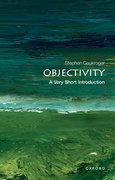By Stephen Gaukroger
In 1983, the director of a grocery chain was appointed to report on the National Health Service, and he concluded that it was under-managed. He was then given the power to recruit 200 chief executives, who were instructed not just to succeed but to succeed measurably. They were told to log waiting lists, appointments, referrals, lengths of stay, operations, incidents, perinatal deaths, overall mortality rates… in fact anything to which a number could be attached.
The central tenet of these new developments was that only the measurable is manageable, and the aim was to manage. By the 1990s, this micro-managerial strategy was being applied to the police service through legislation introduced to authorize the Home Office to set targets for the police and to publish the success rates of the various forces in meeting these targets. At the same time, the Atomic Energy Commission was told to increase the proportion of favourable media coverage by 43.9 per cent, while the Foreign Office had a target set for ‘global peace and stability.’
The perceived merit of this move to measure everything was that it was objective: human judgement could never free itself of assumptions, theories, prejudices, and biases, so the idea was to bypass it in favour of something that was beyond such contamination.
Once we start to examine the question of objectivity in more depth, however, we realize that this obsession with measurement is based on a fundamental misunderstanding of what it is to be objective. To understand objectivity properly we need to understand how it has come to play a central role in our culture, and how science has become a model for decision-making in ordinary life. In fact, objectivity in science is a far more complex and problematic notion than it might at first seem, making it even more problematic that simplistic and poorly thought-out versions of scientific procedures should come to permeate ordinary life.
At a time when well-informed judgement has been replaced by mechanical algorithms, there has never been a more pressing need for an examination of just what objectivity is and what it commits us to. And there has never been a more pressing need for a genuine understanding of objectivity to guide our judgements.
Stephen Gaukroger has been Professor of History of Philosophy and History of Science in the Philosophy Department at the University of Sydney since 1981. His publications include, The Emergence of a Scientific Culture: Science and the Shaping of Modernity, 1210-1685 (OUP, 2006), Descartes’ System of Natural Philosophy (CUP, 2002), and Objectivity: A Very Short Introduction.
The Very Short Introductions (VSI) series combines a small format with authoritative analysis and big ideas for hundreds of topic areas. Written by our expert authors, these books can change the way you think about the things that interest you and are the perfect introduction to subjects you previously knew nothing about. Grow your knowledge with OUPblog and the VSI series every Friday and like Very Short Introductions on Facebook. Subscribe to Very Short Introductions articles on the OUPblog via email or RSS.
Subscribe to the OUPblog via email or RSS.
Subscribe to only philosophy articles on the OUPblog via email or RSS.
Image credit: By Alina Zienowicz (Own work) [CC-BY-SA-3.0], via Wikimedia Commons



Recent Comments
There are currently no comments.